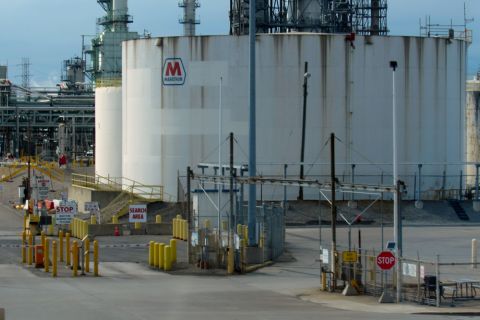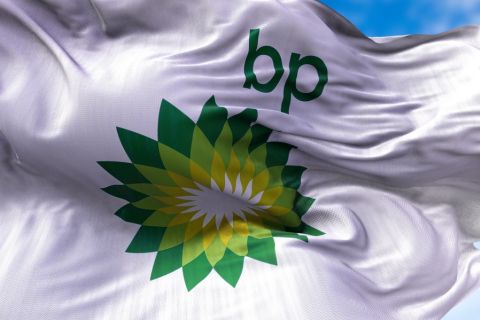The proposed combination of ChevronTexaco and Unocal illustrates several industry trends, including the majors' need to grow and hold Asian assets and their use of higher stock prices as currency. But is the deal a good one? The marketplace was hesitant to fully endorse it at press time. "The market has reacted more negatively than we would have expected...," says Deutsche Bank analyst Paul Sankey. "But our take on the deal is that it is an outstanding strategic move, and [various potential problems], we could be more positive. Return on capital employed is not the way to look at this deal; we believe it is about assets." Those potential problems include "near-term risk on the deal closing, on Asian anti-trust, the risk of Myanmar opposition rattling investor sentiment, the limited potential for a counterbid, and a nasty downstream earnings report due end-month." Forming an Asia-Pacific super-major is the leading rationale for the deal, he adds. ChevronTexaco has placed an $18-billion bid on Unocal in a stock-and-cash offer, including net debt. The offer is 75% stock and 25% cash-1.03 CVX shares or $65 in cash per Unocal share. Net debt is $1.6 billion. Post-closing, ChevronTexaco expects to sell more than $2 billion worth of combined assets. "Unocal is a unique independent with supermajor assets that are an excellent fit with our existing portfolio and our long-term strategies to grow profitably in core upstream areas, build new legacy positions and commercialize our large undeveloped natural gas resource base," says ChevronTexaco chairman and chief executive officer Dave O'Reilly. "It is an attractive transaction that provides value in both the near- and long term." Combined production would average about 3 million barrels of oil equivalent per day in 2006. Unocal has 1.75 billion barrels equivalent of proved reserves, boosting ChevronTexaco's year-end 2004 proved reserves about 15%. Last year, ChevronTexaco failed to replace reserves through drilling and revisions. The Unocal assets are complementary to ChevronTexaco's portfolio in the Asia-Pacific region, the Gulf of Mexico and the Caspian. (For more on both companies' deepwater Gulf of Mexico assets, see "Ultra-Deep, Ultra-Exciting" in this issue.) "ChevronTexaco and Unocal share common roots in the oil fields of California and we believe we have highly compatible business cultures and values," O'Reilly says. Lehman Brothers is financial advisor to ChevronTexaco. Morgan Stanley & Co. Inc. is financial advisor to Unocal. The deal may close in the fourth quarter. Prior to the announcement, Prudential analysts had estimated Unocal's net asset value at about $15.8 billion. "CVX is paying $2.6 billion more than this figure," says analyst Michael Mayer. "However, we note that each $1-per-barrel increase in the normalized price assumptions raises UCL's value by about $700 million. Given that oil and gas prices are both substantially above the normalized levels implicit in Prudential's March 3rd asset-value calculation, we consider the price CVX is paying reasonable." Mayer had a Neutral Weight rating on CVX shares and $65 target price at press time. Sankey had a $65 target and a Hold recommendation. Gene Gillespie, an analyst at Howard Weil, was concerned about CVX spending without reaping substantial earnings as a result. "It appears to us that, upon close of the Unocal purchase, ChevronTexaco expands its capital employed base by $18.5 billion to generate pro forma 2006 earnings-per-share equivalent to current First Call stand-alone earnings estimates." Unocal had been rumored to be a takeover target by ChevronTexaco and other companies, including China's CNOOC, for the past couple of months. Fred Leuffer, an analyst with Bear Stearns, says, "Companies are flush with cash, commodity prices are high, interest rates are low, and corporate raiders are agitating oil company managements. "The oil and gas reserves that underlie several oil companies' stocks can be purchased at prices below finding and development costs." Unocal was his No. 1 candidate for takeover. Others are Murphy Oil, Marathon Oil, Anadarko Petroleum and EOG Resources. "Our work shows that these companies' share prices reflect oil and gas reserve valuations below F&D costs," he says. Potential buyers include CNOOC, ENI, PetroChina, Royal Dutch Shell, ConocoPhillips and Total. He expects oil prices will fall sharply, and oil companies would do well to return free cash flow to shareholders. "However, we suspect some company managements will not take our advice. We think consolidation will be the next wave in the oil industry."
Recommended Reading
Green Swan Seeks US Financing for Global Decarbonization Projects
2024-02-21 - Green Swan, an investment platform seeking to provide capital to countries signed on to the Paris Agreement, is courting U.S. investors to fund decarbonization projects in countries including Iran and Venezuela, its executives told Hart Energy.
Marathon Petroleum Sets 2024 Capex at $1.25 Billion
2024-01-30 - Marathon Petroleum Corp. eyes standalone capex at $1.25 billion in 2024, down 10% compared to $1.4 billion in 2023 as it focuses on cost reduction and margin enhancement projects.
Humble Midstream II, Quantum Capital Form Partnership for Infrastructure Projects
2024-01-30 - Humble Midstream II Partners and Quantum Capital Group’s partnership will promote a focus on energy transition infrastructure.
BP’s Kate Thomson Promoted to CFO, Joins Board
2024-02-05 - Before becoming BP’s interim CFO in September 2023, Kate Thomson served as senior vice president of finance for production and operations.
Magnolia Oil & Gas Hikes Quarterly Cash Dividend by 13%
2024-02-05 - Magnolia’s dividend will rise 13% to $0.13 per share, the company said.





